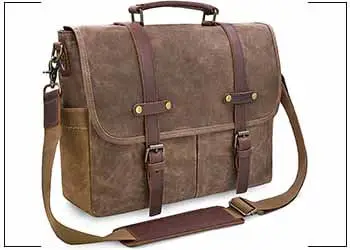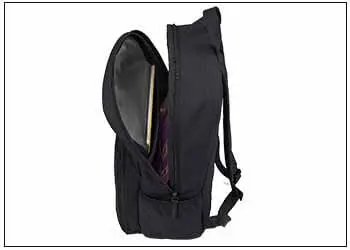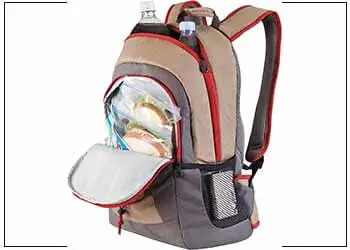Have you ever found yourself curious about the logistics of jury duty? As you prepare to take on this significant civic responsibility, one question that might cross your mind is, “Can I bring a backpack to jury duty?” Fear not, for we’re here to shed light on this query and provide you with all the essential information you need. Serving on a jury is a fundamental part of our legal system, allowing citizens like yourself to participate in the administration of justice. Here, today, we will explore the guidelines and rules surrounding what you can bring to the courtroom, including that trusty backpack of yours. Let’s delve into the details, ensuring you’re well-prepared and informed for your jury duty experience.
Can I Bring a Backpack to Jury Duty?
It is really a big question that can I bring a backpack to a jury duty? Well, understanding what items are permissible within the courtroom ensures a smooth and efficient jury duty experience for all involved. To answer this question, yes, you can bring a backpack to jury duty but it depends. What depends? A backpack may be allowed to jury duty but it is important that what you are carrying inside it. So, let’s embark on this enlightening journey to discover the answer to your burning question about the backpack, equipping you with the knowledge you need to fulfill your role effectively and responsibly.
Before knowing whether you can bring a backpack to jury duty or not, let’s discuss what are jury duty and courtroom etiquette. And after that, we will learn the permissible items at jury duty.
Read More Articles:
What is Jury Duty?

Jury duty is a civic responsibility in which eligible individuals are summoned to serve as jurors in a court of law. Jurors play a vital role in the legal system by participating in the decision-making process for both civil and criminal trials. When called for jury duty, individuals become part of a diverse group representing the community, entrusted with the responsibility of ensuring a fair and impartial trial for the parties involved.
Jurors listen to evidence, evaluate witness testimonies, and collaborate with fellow jurors to reach a verdict based on the facts presented during the trial.
Courtroom Etiquette
I. Showing Respect for the Legal Process:
When attending jury duty, it is crucial to exhibit utmost respect for the legal process. The court is a place of serious business, where justice is served, and decisions are made that can profoundly impact people’s lives. Show respect by arriving on time and being attentive throughout the proceedings. Avoid any disruptive behavior, such as talking, using electronic devices, or making unnecessary noise. Stand when the judge enters or leaves the courtroom, and address the court with appropriate titles, such as “Your Honor.” Demonstrating respect for the court and its proceedings is not only essential for maintaining order but also contributes to the fair administration of justice.
II. Proper Behavior during the Trial:
As a juror, it is vital to conduct yourself appropriately during the trial. Pay close attention to the evidence presented, witness testimonies, and the arguments put forth by both the prosecution and the defense. Take notes if allowed, as this can help you remember key points during jury deliberations. Maintain a neutral demeanor, refraining from showing bias or prejudice. Remember that your role as a juror is to objectively evaluate the evidence and make an unbiased decision based on the facts presented in the case. Avoid discussing the trial with others during breaks or outside of the jury room to prevent potential influence on your judgment.
III. Interaction with Lawyers and Witnesses:
During the trial, you may have limited interaction with the lawyers and witnesses involved. It’s essential to remember that you are an impartial observer and not an active participant in the proceedings. Avoid any unnecessary interactions with the lawyers or witnesses, and do not engage in conversations with them. If the lawyers approach you, respond politely, but avoid discussing the case or expressing any opinions about it. Jurors must remain neutral and impartial throughout the trial, which includes refraining from forming personal connections with the trial’s participants. By maintaining a respectful distance and adhering to your role as a juror, you contribute to the integrity and fairness of the legal process.
Can You Bring a Backpack to Jury Duty?
Permissible Items at Jury Duty

I. Understanding the Court’s Security Measures:
Courthouses implement strict security measures to ensure the safety of everyone present and maintain the integrity of the judicial process. Before entering the courtroom, all jurors and visitors must pass through a security screening. This typically involves walking through a metal detector and having bags and belongings inspected. Understanding and complying with these security measures is crucial to maintaining a safe and secure environment during jury duty.
II. Allowed Personal Items:
During jury duty, certain personal items are allowed in the courtroom. These items are necessary for jurors’ comfort and well-being while ensuring that the trial proceedings run smoothly.
- Wallet, Purse, or Handbag: Jurors are permitted to bring their wallets, purses, or handbags, which may contain identification, money, and personal items.
- Electronic Devices: Electronic devices, such as mobile phones, laptops, and tablets, are generally allowed in the courtroom. However, they must be silenced or turned off during the proceedings to avoid disruptions. Jurors may use these devices during breaks or recesses, but they should refrain from using them while the trial is in progress.
- Medications and Medical Equipment: Jurors are allowed to bring necessary medications and medical equipment, such as inhalers, insulin supplies, or hearing aids. It’s essential to inform the court staff about any medical needs to ensure accommodation and accessibility during jury duty.
Quick Overview of What You Should Be Carrying
There are some general and important items that you need to carry with you. It varies from person to person what items should be needed. However, we are mentioning here what items can be carried during jury duty.
| Items | Reasons to Carry |
| Water | You will be waiting for 6-7 hours and it is better to have something to drink. |
| Snacks and Food | Food near the courthouse is expensive. |
| Napkins | If it is not A.C or it is not working then the napkins will cope with the sweat. |
| Light jacket | If there is AC and you feel cold then the jacket will help you to stay comfortable. |
| Cash | You may not find the atm near the courthouse and this is why it is better to have cash. |
| Book and Magazine | To avoid boredom. |
In later paragraphs, we will discuss it eventually in a broader way. You must know and learn a lot from there, we hope. Let’s go ahead.
What Can You Not Bring into a Courthouse?
What Items to Leave at Home
To maintain a focused and secure environment in the courtroom, certain items are strictly prohibited and must be left at home or in a designated storage area.
- Prohibited Weapons and Dangerous Items: Bringing weapons, firearms, sharp objects, or any potentially dangerous items to the courthouse is strictly prohibited. Such items pose significant safety risks and are subject to confiscation, with possible legal consequences for the individual attempting to bring them into the courtroom.
- Food and Beverages: In most cases, jurors are not allowed to bring food or beverages into the courtroom. However, courthouses usually provide designated areas, such as break rooms or cafeterias, where jurors can have meals and snacks during scheduled breaks.
- Recording Devices: Recording devices, including cameras, audio recorders, and video cameras, are generally not permitted in the courtroom. This is to protect the privacy and integrity of the trial proceedings. Unauthorized recording may result in serious legal consequences, including contempt of court charges.
By adhering to these guidelines and understanding what items are allowed and prohibited, jurors can contribute to a smooth and efficient jury duty experience while ensuring the safety and respect of the court’s procedures.
What Can I Bring To Jury Duty?
The question of what one can bring to jury duty is a common concern among prospective jurors. Understanding what personal items are permitted and what should be left at home is crucial for a smooth and comfortable experience during this civic responsibility. Here, we will explore the permissible items that jurors are typically allowed to bring to the courthouse, as well as the importance of practicality and convenience in preparing for jury duty. By adhering to the guidelines and knowing what to bring, jurors can ensure they are well-prepared while upholding the integrity of the judicial process.
Here’s a table about what you can bring to jury duty. The listing includes what you can bring and what you should leave at home when attending jury duty:
| What You Can Bring to Jury Duty |
|---|
| + Jury Summons and Identification + Wallet, Purse, or Handbag + Electronic Devices (phones, laptops, etc.) + Medications and Medical Equipment + Notepad and Pens + Reading Material (books, magazines, etc.) + Personal Comfort Items (jacket, blanket, etc.) + Snacks or Small Non-Messy Food Water Bottle + Necessary Medical Items (inhaler, insulin, etc.) |
| What You Should Leave at Home |
|---|
| – Prohibited Weapons and Dangerous Items – Food and Beverages – Recording Devices – Large Bags or Suitcases – Cameras or Video Equipment – Sharp Objects – Noisy or Disruptive Items – Electronic Cigarettes – Vape Pens or E-cigarettes – Strong Perfumes or Fragrances |
Remember that the specific items allowed or prohibited may vary depending on the courthouse and its security policies. Always check your jury summons or the court’s website for the most up-to-date information on what you can bring to jury duty.
Can you bring your laptop inside your backpack to the Jury Duty?
It is a common question that can I bring a backpack to a jury duty? The ability to bring a laptop inside a backpack to jury duty depends on the specific rules and policies of the courthouse where you are serving as a juror. Some courthouses may allow jurors to bring electronic devices, including laptops, into the courthouse, while others may have restrictions or prohibitions for security and logistical reasons.
If you are unsure about whether you can bring a laptop to jury duty, it is essential to check the instructions provided in your jury summons or visit the court’s website for specific guidelines. The court’s website or the jury services office will typically have information regarding what items are allowed and prohibited inside the courthouse, including whether laptops can be brought inside your backpack.
If laptops are allowed, jurors may need to comply with usage guidelines, such as turning off the device or silencing it during court proceedings to avoid disruptions. Additionally, jurors should ensure that they are prepared to carry their backpack and laptop through any security screening processes required by the courthouse.
To avoid any issues, it is best to follow the rules and guidelines set forth by the court, as these policies are designed to maintain a safe and efficient environment during jury duty.
Can I Bring Food and Drink to Jury Duty?
The policy regarding bringing food and drink to jury duty can vary depending on the specific courthouse and jurisdiction. In many courthouses, jurors are not allowed to bring food or beverages, including water, into the courtroom during the trial proceedings. This restriction is in place to maintain order, prevent distractions, and ensure the focus remains on the trial.
However, most courthouses provide designated areas, such as break rooms or cafeterias, where jurors can have meals and snacks during scheduled breaks or recesses. During these breaks, jurors are free to leave the courtroom and use the designated areas to eat and drink.
To avoid any potential issues, it is essential to check the instructions provided in your jury summons or visit the court’s website for specific guidelines on what you can bring to jury duty. By following the rules and regulations set by the court, jurors can ensure a smooth and efficient jury duty experience while respecting the protocols in place for the proper functioning of the judicial process.
What Things you should avoid in the courtroom?
In the courtroom, it’s essential to adhere to certain guidelines and conduct yourself appropriately to ensure a respectful and orderly environment. Here are some things you should avoid in the courtroom:
- Talking: Jurors, witnesses, and spectators should avoid unnecessary conversations during court proceedings to maintain a quiet and focused atmosphere.
- Cell Phone Usage: Using mobile phones or other electronic devices should be strictly avoided during court proceedings. These devices should be silenced or turned off to prevent disruptions.
- Disrespectful Behavior: Displaying disrespectful behavior towards the judge, court staff, lawyers, witnesses, or other individuals in the courtroom is inappropriate and should be avoided.
- Eating or Drinking: Jurors and spectators should not eat or drink inside the courtroom. Food and beverages are typically only allowed in designated areas during scheduled breaks.
- Recording or Photography: Recording audio, video, or taking photographs inside the courtroom is strictly prohibited without prior authorization from the court.
- Display of Emotion: Excessive displays of emotion, such as crying or loud outbursts, should be avoided to maintain decorum in the courtroom.
- Display of Bias: Jurors should refrain from displaying any bias or prejudice towards the parties involved in the case and should evaluate the evidence objectively.
- Discussing the Case: Jurors should not discuss the case with anyone, including fellow jurors, until the deliberation process begins.
- Dress Code Violations: Dressing inappropriately or wearing clothing with offensive messages should be avoided, as most courts have a specific dress code that must be followed.
- Leaving or Entering during Proceedings: Spectators and jurors should avoid leaving or entering the courtroom while court is in session, as it can be disruptive.
By observing these guidelines and maintaining respectful behavior, individuals contribute to the smooth functioning of the court proceedings and uphold the integrity of the judicial process.
Can I bring my purse to court?
Yes, in most cases, you can bring your purse to court. Courthouses generally allow individuals, including jurors and spectators, to bring small purses or handbags containing personal items like identification, money, and belongings. However, be mindful of the purse’s size, as some courthouses may have restrictions on larger bags for security reasons. Always check the specific guidelines provided in your jury summons or on the court’s website to ensure compliance with the courthouse’s policies. Know more.
Final Words
In conclusion, the permissibility of bringing a backpack to jury duty hinges on the specific courthouse’s rules and regulations. Some courthouses may allow jurors to bring backpacks, while others may have restrictions for security reasons. To avoid any issues, it is essential to check the guidelines provided in your jury summons or on the court’s website. Regardless of whether a backpack is allowed, prioritizing practicality and convenience by carrying necessary personal items ensures a smooth and comfortable jury duty experience. By adhering to the courthouse’s policies, you can fulfill your civic duty responsibly while contributing to the fair administration of justice.




